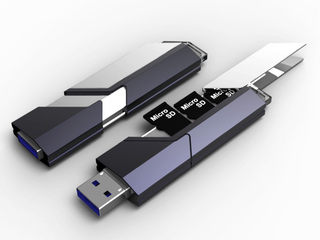Microsoft reinventing itself for PC plus era.
Published:
14 November 1999 y., Sunday
Microsoft Corporation does not think the last word has been said by Judge Thomas Penfield Jackson on November 5 when he ruled that the software giant has monopoly control over PC operating systems and wields that power in ways that harms consumers. Mr. Jeff Rakes, a member of Mr. Bill Gates inner circle, said here today that the company was banking on the appeals process, first in the D. C. Circuit Court of Appeals and, if that fails, later in the Supreme Court. Mr. Rakes also said the company could be bailed out because courts have usually held that software companies should be allowed to innovate. In fact, Microsoft has recently formed a group called ``Freedom to Innovate'' which is aggressively campaigning against the ``fact of findings'' by Judge Jackson and would like to avert any carving up of the company or being forced to reveal the source code of Windows to its competitors. This group also holds that such rulings will end up in the Government regulating the computer industry which will be bad for the economy and the consumers. Rakes pointed out that it faced little competition from its competitors (90% of operating systems are by Microsoft) because of its heavy investments in R & D. Earlier, addressing CEOs of Indian industry, Mr. Rakes also chose to drove home the same point about the company_s intention to change the way businesses operate through constant innovations in IT.Giving an outline of the way Microsoft as an organisation was orienting itself for the ``PC plus'' era, Mr. Rakes said it was essential for corporates to begin behaving like digital nervous systems in order to survive the coming ``Knowledge economy'' in which there will be a dramatic acceleration of the flow of information. The digital nervous system he said, is all about leveraging the two revolutions in IT in order to increase competitiveness. The first revolution was the packaging of more and more computing power in PCs to the extent that they became digital dashboards and the second was connection of this power with that of the Internet. He said Microsoft was ``reinventing itself for the PC plus era'' which was expressed by Bill Gates himself .
Copying, publishing, announcing any information from the News.lt portal without written permission of News.lt editorial office is prohibited.
The most popular articles
Software company announced new structure_ of it_s business.
more »
 A new generation of smart phone "iPhone5" will go on sale in September.
more »
A new generation of smart phone "iPhone5" will go on sale in September.
more »
 The Collector USB Flash Drive is one awesome concept that I’d love to see on shelves.
more »
The Collector USB Flash Drive is one awesome concept that I’d love to see on shelves.
more »
 Internet Giant Google announced that they will be investing $168 million in a solar energy power plant being developed in the Mojave Desert by the startup BrightSource Energy.
more »
Internet Giant Google announced that they will be investing $168 million in a solar energy power plant being developed in the Mojave Desert by the startup BrightSource Energy.
more »
 New battery in your phone or laptop, that is charged hundreds of times faster.
more »
New battery in your phone or laptop, that is charged hundreds of times faster.
more »
 Facebook has announced that it will share the design secrets behind its new energy-efficient data centre with rival companies.
more »
Facebook has announced that it will share the design secrets behind its new energy-efficient data centre with rival companies.
more »
 The powerful new 15.6” ASUS-Automobili Lamborghini VX7 offers a completely revamped notebook experience...
more »
The powerful new 15.6” ASUS-Automobili Lamborghini VX7 offers a completely revamped notebook experience...
more »
 Moonwatch clock is designed to determine the relation between lunar cycle and human emotions.
more »
Moonwatch clock is designed to determine the relation between lunar cycle and human emotions.
more »
 Every year, Fortune magazine comes out with its list of the Most Admired Companies in the world.
more »
Every year, Fortune magazine comes out with its list of the Most Admired Companies in the world.
more »
 NASA's Messenger spacecraft delivers its first photos of Mercury and the first images ever taken from the rocky planet's own orbit.
more »
NASA's Messenger spacecraft delivers its first photos of Mercury and the first images ever taken from the rocky planet's own orbit.
more »
 What is the current role and likely future role of social media tools like Facebook and Twitter in framing European discourse?
more »
What is the current role and likely future role of social media tools like Facebook and Twitter in framing European discourse?
more »